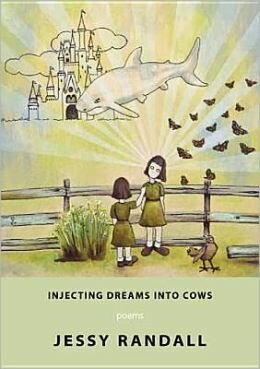Sorry, Felinghetti: Jessy Randall on the World’s Use for Poetry.
I’m going to celebrate National Poetry Month by having an argument with a 94-year-old-man.
In his 2001 poem “Challenges to Young Poets,” Lawrence Ferlinghetti (born 1919) says “To be a poet at sixteen is to be sixteen; to be a poet at forty is to be a poet.” (He’s probably referencing the 19th century artist Eugene Delacroix, who said something similar.)
I disagree. I think to be a poet at sixteen is to be a poet, and to be a poet at forty is to be a poet. But I do agree that most teenage poets do not stay poets, and I lament that.
When I was in high school I knew many great poets. I was in class with them. I saw them every day. I read their poems every week. I knew they were much better than I was. I KNEW it, objectively. (In college I would argue against the idea of objective quality as hard as I argued for it in high school, but that’s another story.)
Everyone wrote poetry then. Some people hid it more than others, but I was an editor of the high school literary magazine and I’m telling you, EVERYONE wrote poetry. Even the people you would least suspect.
But then, somewhere along the line, they all stopped (except me). I wish they hadn’t. They were so good! I would like to read what they would have written, if they’d kept on writing.
I don’t usually try to defend poetry or say that it helps the world. I’m usually not certain that poetry does anything except make me (and some other people) occasionally happy or sad or some other emotion. This week, however, I read a poem that made me think poetry might serve a larger function.
After the bombs went off at the Boston Marathon, everyone around me (physically and virtually) was upset and didn’t know what to say or do. We mostly threw up our hands. Maybe we reached out to each other a little bit, but mostly we threw up our hands, as we do after school shootings (see this article in The Onion).
Poet Scott Poole, however, wrote a poem. I know Scott a little bit. We read together last year in Spokane, Washington. I’m a huge fan. He is hilarious. Not this time, though. Here’s the poem he shared on Facebook:
To Run, a prayer for Boston
To run
is to rise above the weak spirit
is to take on pain
is to push pain in the chest
with both palms
stumbling over garbage,
gravel, fragments of life,
is to say I will take you
on in the street.
Every breath of mine
is a battering ram,
shoving, crushing,
swinging a hammer of air.
I am a body of fast moving blood
inhaling you
taking you in like a tank.
I will consume your hate.
I will run straight into you
as if you were a finish line of joy,
picking up the fallen along the way
and you will never stop me,
you will never
stop me.
Soon I was receiving this poem from other friends, friends with no personal connection to Scott. I received it maybe four times this way. Then, somewhere along the line, someone turned the poem into a more-easily-shareable image. I received the image perhaps six times. Then the poem appeared in a literary magazine and on Boston’s NPR station. It’s on many other sites now.
So maybe we actually do get something out of poems, sometimes. All of us. Hope, and comfort, and a feeling of shared humanity, which we always need, but sometimes need very much.
In his poem “Asphodel, That Greeny Flower,” William Carlos Williams wrote “It is difficult / to get the news from poems / yet men die miserably every day / for lack / of what is found there.” Is that really true? Poet Aaron Anstett doubts it. Aaron once told me that he doesn’t think anyone ever died from lack of poetry. We laughed. Upon reflection, though, I’m not so sure.
Aaron also says that poetry isn’t a way to make a living, but it is a way to live your life. Teenagers, and others, please keep writing poems. I’m going to need things to read when I am old. Thank you.

Red Hen Press, September 2012.
Jessy Randall’s poems, poetry comics, and other things have appeared in Asimov’s, McSweeney’s, Painted Bride Quarterly, and Rattle. They have also been hung from trees, stuffed into birdhouses, and sold in gumball machines. Her latest book is INJECTING DREAMS INTO COWS (Red Hen, 2012); her website is http://personalwebs.coloradocollege.edu/~jrandall/ ; and she blogs about library shenanigans at http://libraryshenanigans.wordpress.com/. Sometimes her friends make devil horns behind her in photographs.

Oh goodness gracious I loved this so much. Thank you thank you.